News and features
Read the latest news and features about our world-leading research, discoveries, fundraising and philanthropy. If you want to keep updated on our news, you can follow us on social media or sign up for our Search newsletter.
If you’re a journalist and want to find out more, you can contact our media relations team.
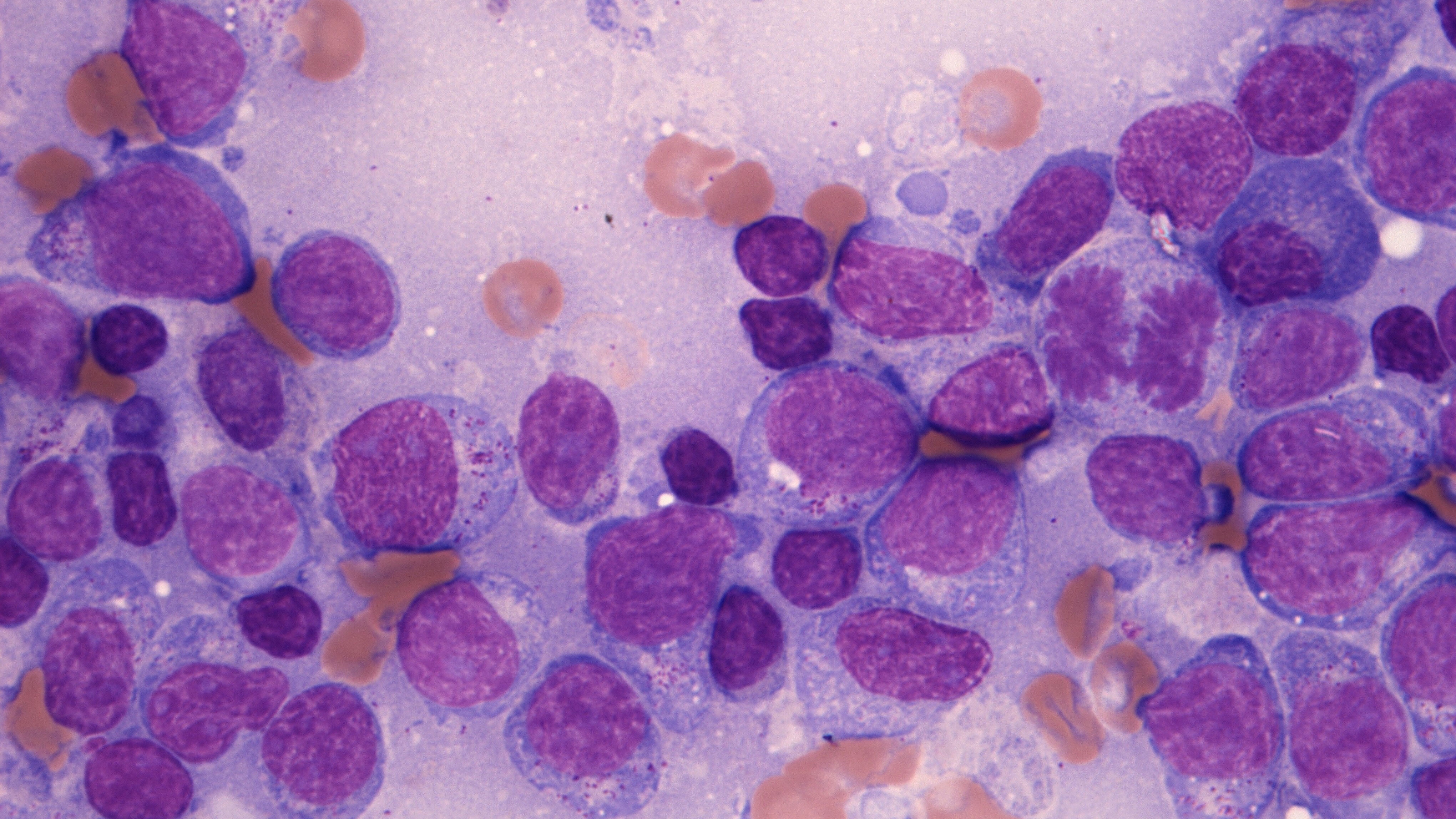
Thousands of blood cancer patients could benefit from new drug combination
Thousands of patients with a common type of blood cancer could benefit from a new drug combination, while others could see their disease kept at bay for longer.
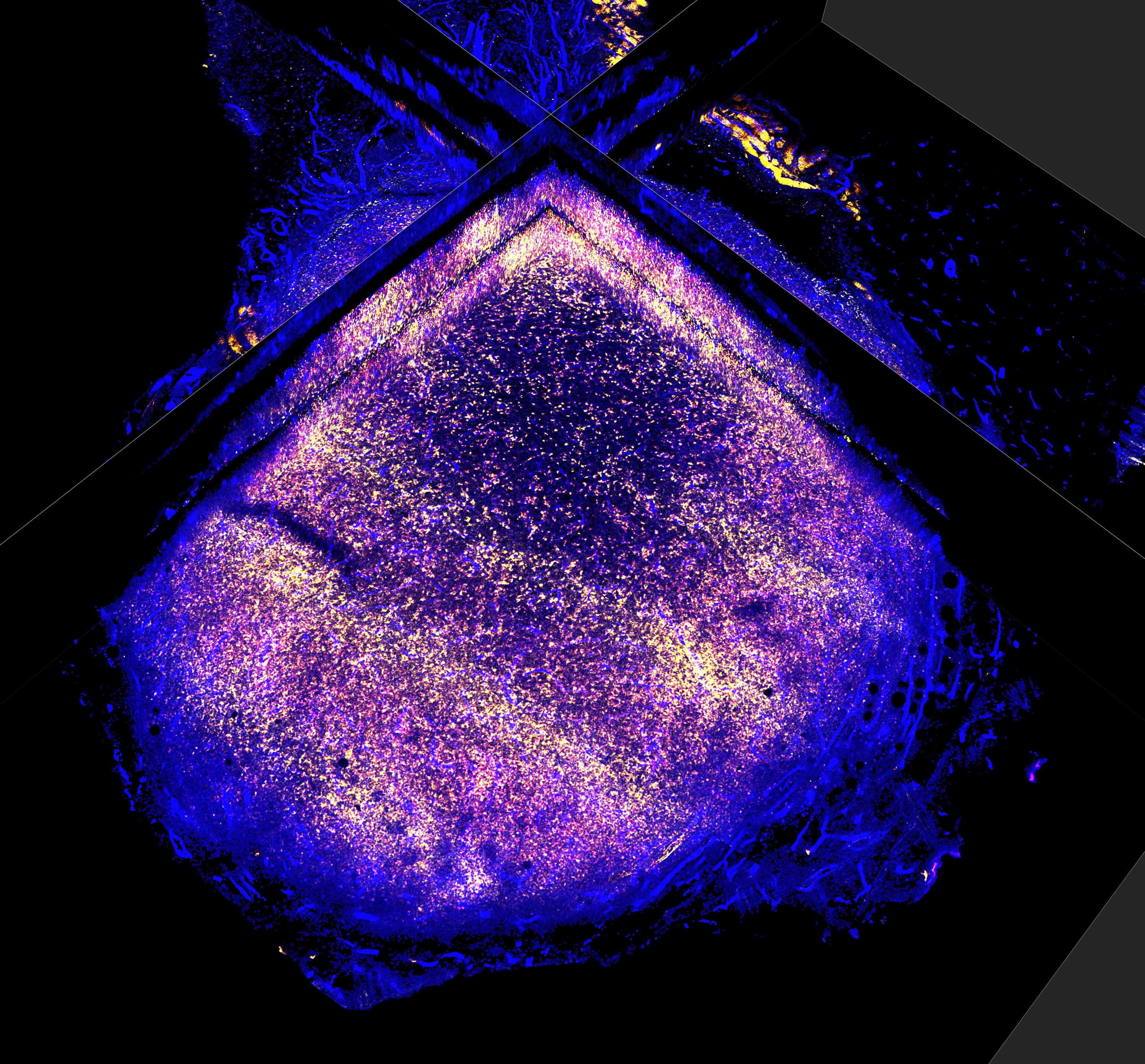
Silencing gene may combat formation of radiation-induced scar tissue, a new study reveals
A new study suggests that silencing CXCL12, a gene involved in tissue scarring and repair, could help reduce the formation of scar tissue that can caused by radiotherapy. Ultimately, the researchers hope this approach could improve treatment outcomes for breast cancer patients undergoing radiotherapy and reconstructive surgery.
_kevin-harrington-embed.jpg?sfvrsn=cb25ea76_1)
ASCO 2025: One-time cell therapy offers long-term survival hope for patients with advanced melanoma
A one-time immunotherapy treatment using a patient’s own immune cells has shown long-lasting benefit for people with advanced melanoma, a serious form of skin cancer, according to new five-year follow-up data from a pivotal clinical trial.
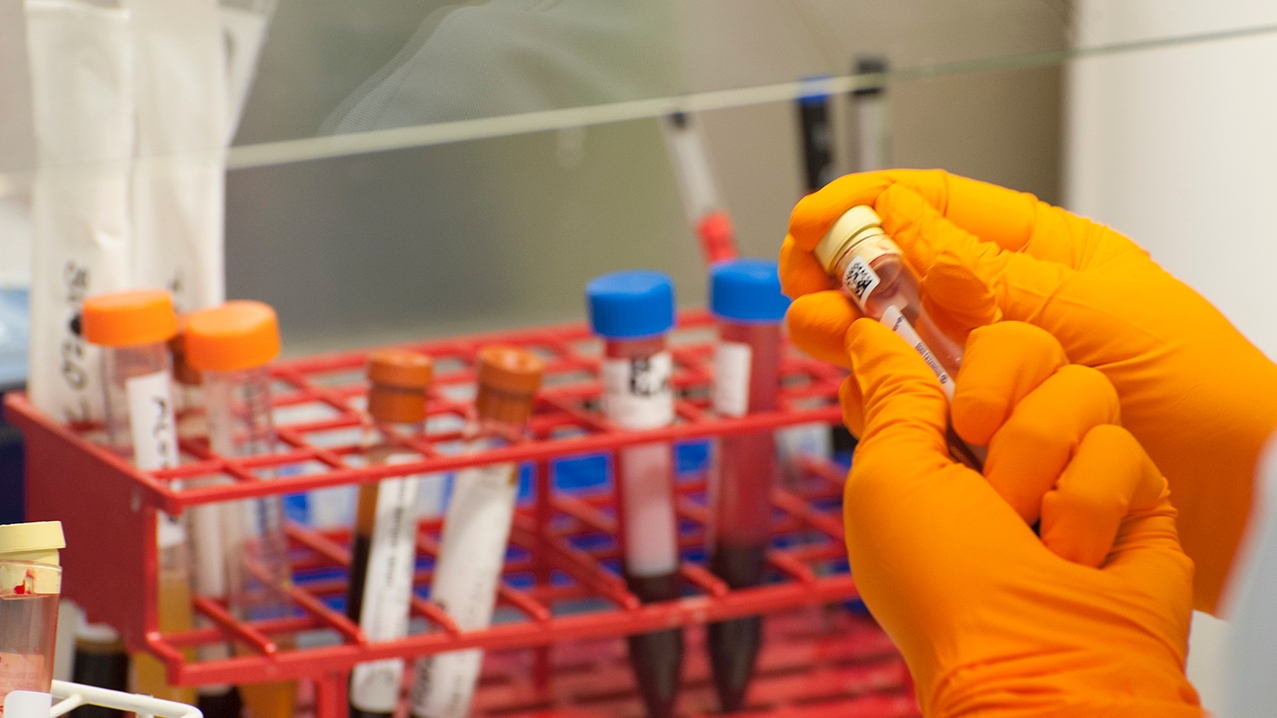
ASCO 2025: Next-generation breast cancer drug targets tumours before they have a chance to grow
A powerful new drug for advanced breast cancer can be used to treat emerging tumours, months before they have a chance to grow, helping to keep patients well for longer and delaying the need for later-line therapies including chemotherapy.
Results of a global study, funded by AstraZeneca and co-led by researchers at The Institute of Cancer Research, London, The Royal Marsden NHS Foundation Trust and Institut Curie, Paris, were presented at the American Society of Clinical Oncology (ASCO) annual meeting in Chicago on 1 June 2025.
.jpg?sfvrsn=5e059cab_3)
ASCO 2025: New therapy improves survival in advanced breast cancer and delays need for chemotherapy
A promising new therapy can help patients with aggressive advanced breast cancer live longer and delays the need for further chemotherapy, new research has shown.
Final results of the INAVO120 study, led by an international team of researchers including scientists at The Institute of Cancer Research, London, and The Royal Marsden NHS Foundation Trust, have demonstrated the potential of the new therapy combination for targeting PIK3CA-mutated hormone receptor positive (HR+), human epidermal growth factor receptor 2 negative (HER2-) breast cancer – a common form of the disease.
-being-attacked-by-two-cytotoxic-t-cells-(red)-547x410.tmb-hbmobile.png?Culture=en&sfvrsn=8f59440b_2)
ASCO 2025: Immunotherapy gives head and neck cancer patients extra years disease-free
An immunotherapy helps patients live years longer without their cancer getting worse or coming back, a major phase III trial has found.

ASCO 2025: AI test determines best prostate cancer treatment – which could save NHS money
A new AI test can pick out which men with high-risk prostate cancer that has not spread will require life-extending drug abiraterone.
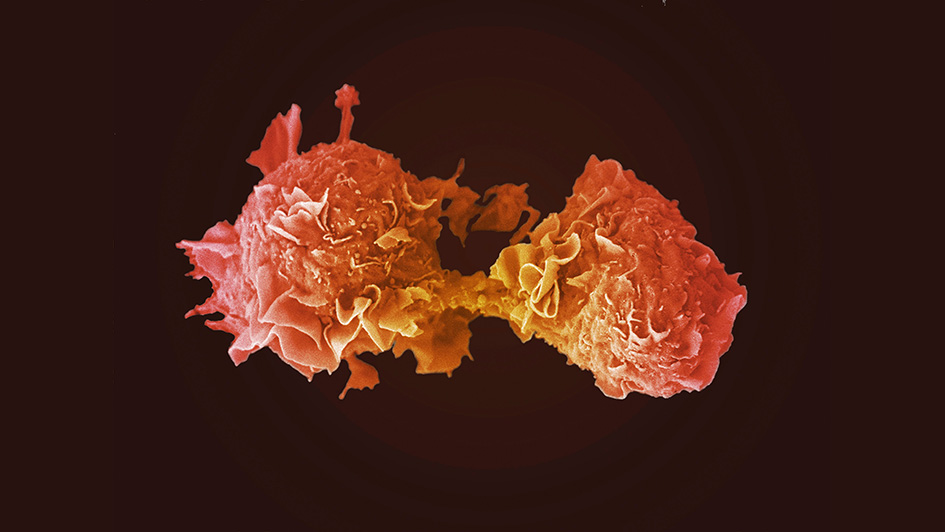
Valuable new resource could speed up the development of new drugs targeting cell cycle disruptions
Using an innovative scientific approach, scientists have obtained a wealth of new data on many of the proteins responsible for regulating the cell cycle – a sequence of molecular events that culminates in the production of two daughter cells.
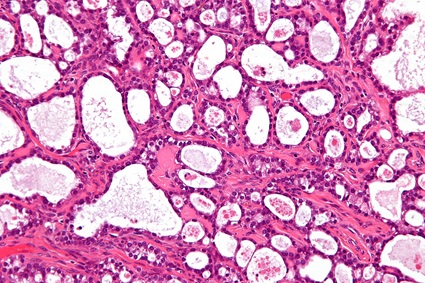
ICR welcomes approval for new ovarian cancer drug combination
The Institute of Cancer Research, London, has welcomed the approval of a new combination of two drugs for ovarian cancer by the US regulatory body the Food and Drug Administration (FDA).
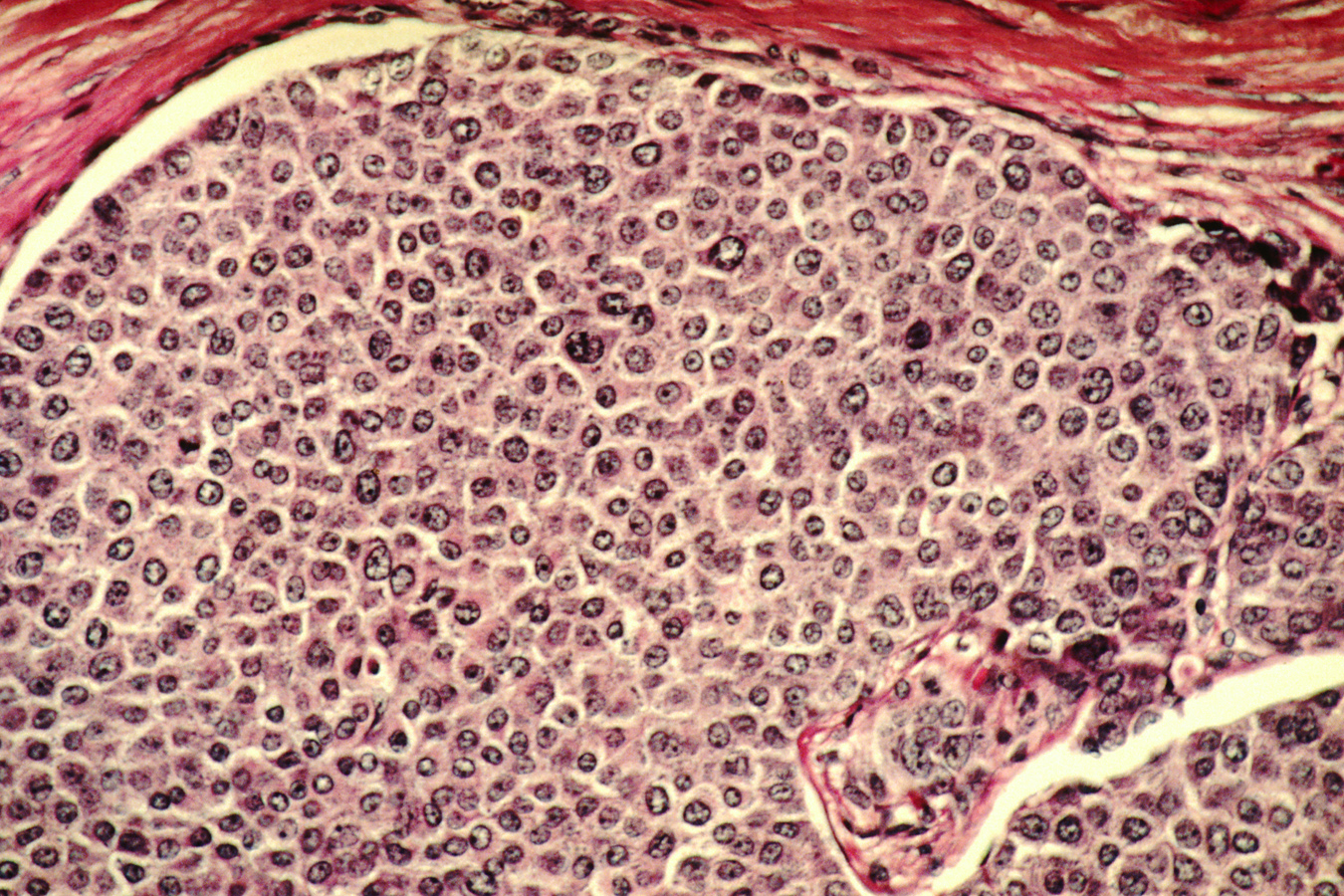
New weakness to target breast cancer cells discovered
Researchers at The Institute of Cancer Research, London, have uncovered a hidden weakness in some breast cancer tumours that could lead to smarter treatment decisions.
945x532.png?sfvrsn=310c2acf_2)
New protective role of gene frequently mutated in cancer uncovers potential therapeutic target
New research into how cancer develops has uncovered more detail about the importance of the centromere, a region of human DNA that has a critical role in effective cell division.
-mucinous-ovarian-tumour---945x532.jpg?sfvrsn=5e9bb32b_2)
Smarter chemotherapy approach could delay drug resistance in ovarian cancer
Adaptive chemotherapy – a personalised approach to giving chemotherapy – can prolong survival in lab models of ovarian cancer, according to new results published in the journal Cancer Research.
